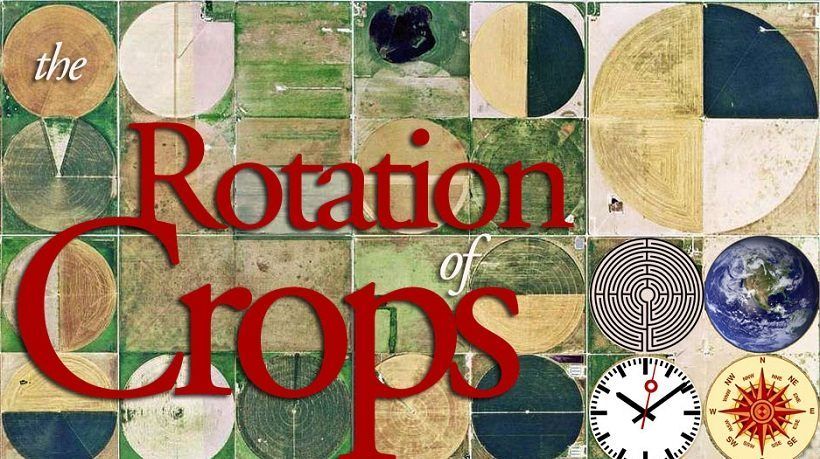Mindful Pivoting And The Rotation Of Crops
I still remember the day some 30 years later, with mixed emotions. Sitting in a conference room with expansive views of Lake Michigan on the 39th floor of a Chicago skyscraper, and signing the papers that would transfer my little company I had built for 10 years to a big public company. I was excited, sad, proud, and maybe even a little bit scared.
People in suits, most of them much older than my pony-tailed partner and I, were seated at a long conference table with mountains of carefully negotiated papers to be signed, and one document in particular that struck a chord with me that day. A “non-compete agreement” that said whatever I did next, it couldn’t be what I was doing now. I learned later, that what seemed like a banishment to Elba, was more of a gift that has made my working life so much more interesting.
Consciously, or not, I’ve tried to mix things up every 10 or 15 years. What started with a dictate from a contract has turned into a 21st-century skill. The working world of my parents, who stayed in the same professions for their entire adult lives, is not the world of my children, or me for that matter. The dynamic nature of our world demands that we take a broader perspective than our parents did and embrace change.
“Boredom is the root of all evil” wrote the Danish philosopher Søren Kierkegaard in an 1852 essay provocatively titled The rotation of crops. He was referring to changing one’s interests or profession over time and provided a useful metaphor to examine the role of change in the arc of our careers. Kierkegaard advocated changing the “method of cultivation and the kinds of crops” rather than “changing the soil.”
“Arbitrariness is the whole secret. … The more consistently a person knows how to sustain his arbitrariness, the more amusing his combinations come. ... The accidental outside a person corresponds to the arbitrariness within him. Therefore he always ought to have his eyes open for the accidental, always ought to be ready if something should come up.”[1]
The pivot is a well-worn trope in Silicon Valley these days, referring to the trajectories of companies forced to modify strategies to react to market realities. The rotation of crops is a more personal pivot. It may be triggered by external events, but it fundamentally comes from the inside out; a need to broaden one’s horizons and divergently apply new skills to old ideas or new ideas to old skills. Kierkegaard suggested that the nature of this pivot need not be a radical change of land, but can remain rooted in the soil it grew from.
My own path went from traditional animation to computer control of animation cameras, to computer graphics, to digital editing, and most recently into educational technology. There is a clear thread that connected each step to the next, and an overarching theme to the rotations - using technology to make tools that solve problems for creative people. At 61, I have at least one rotation left in me, and I suspect it will spin out from one of my past lives. The intermediate steps may be different, as are their catalysts, but the thread that binds them is what defines the arc of a working life.
It’s not altogether clear to me what actually drives the definition of that arc. Is this result of a deliberative thought process? Are we simply talking ourselves into concocting a larger narrative? Are are we unconsciously following a hidden internal script; shaped by parents, friends, culture? Or is the arc like “a box of chocolates”, shaped by a series of random events?
Taking Control Of The Arc
I’ve come to see the pivot as a way to take control of the arc by letting serendipity give us some more bonbons that weren't in our first box. The great thing is, you get to choose which one(s) to pick. The problem is we often get blinded by habit and sometimes can't see how delicious truffles are when professing to only like cream-filled ones.
The rotation of crops should not be confused with dabbling, not that dilettantism is necessarily bad. There is a pragmatic reason to keeping one foot planted in the past: Expertise. It takes time to become good at something (Anders Ericsson’s 10,000-hour rule[2] popularized by Malcolm Gladwell), and while it is indeed possible to start completely from scratch, having the solid grounding in an allied field certainly makes life easier. Like history, our skills and expertise don’t apply themselves well to new situations, but gently rhyme.
Even though I still outwardly protest signing non-compete agreements; secretly, I’ve come to welcome the tilling of new fields. And I suspect I’m not alone.
Footnotes:
- Kierkegaard, S. (1852). The Rotation Of Crops - A Venture in a Theory of Social Prudence.
- Ericsson, K. A., Krampe, R. T., & Tesch-Römer, C. (1993). The Role Of Deliberate Practice In The Acquisition Of Expert Performance. Psychological review, 100(3).








